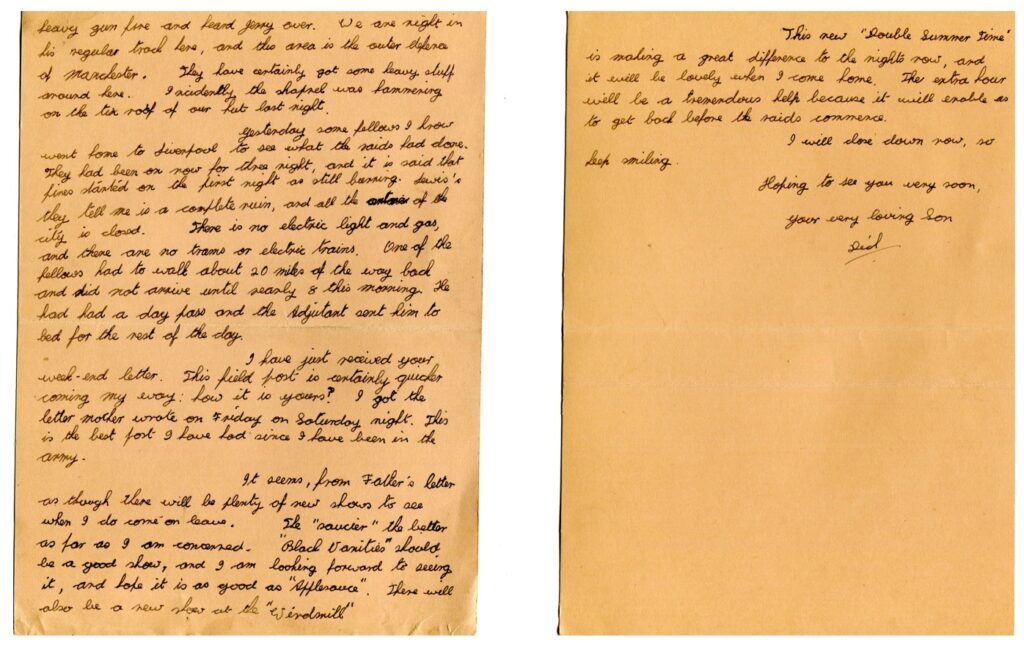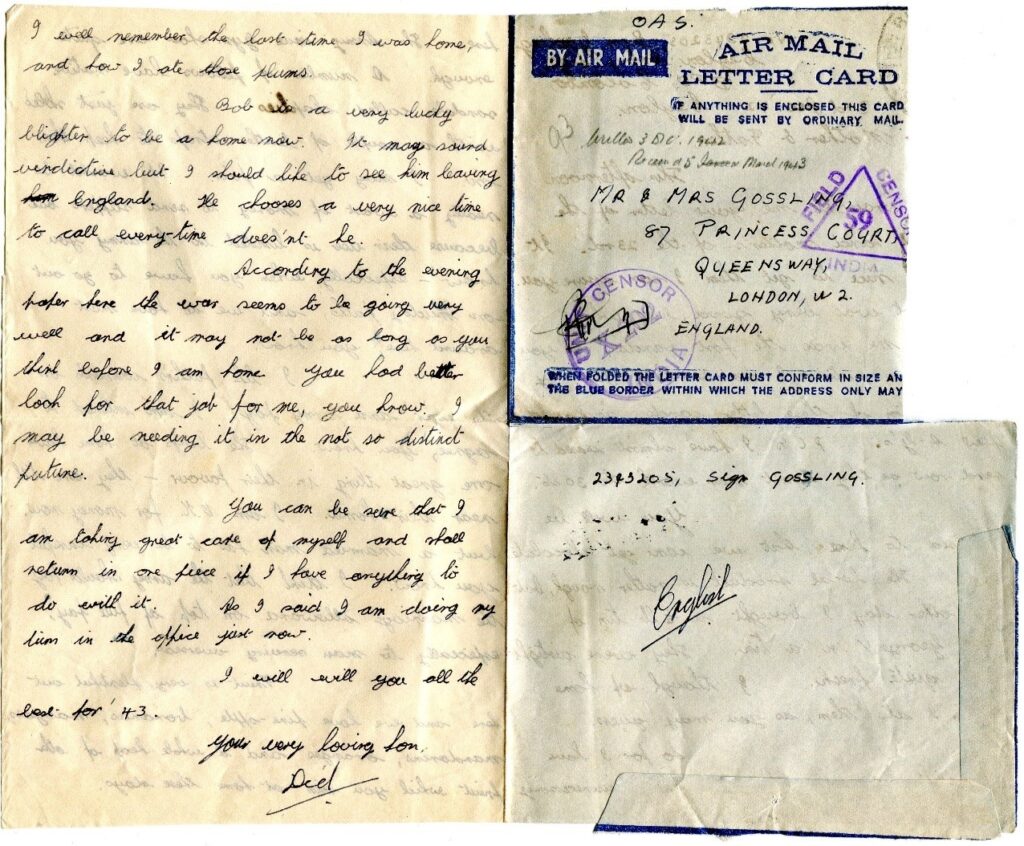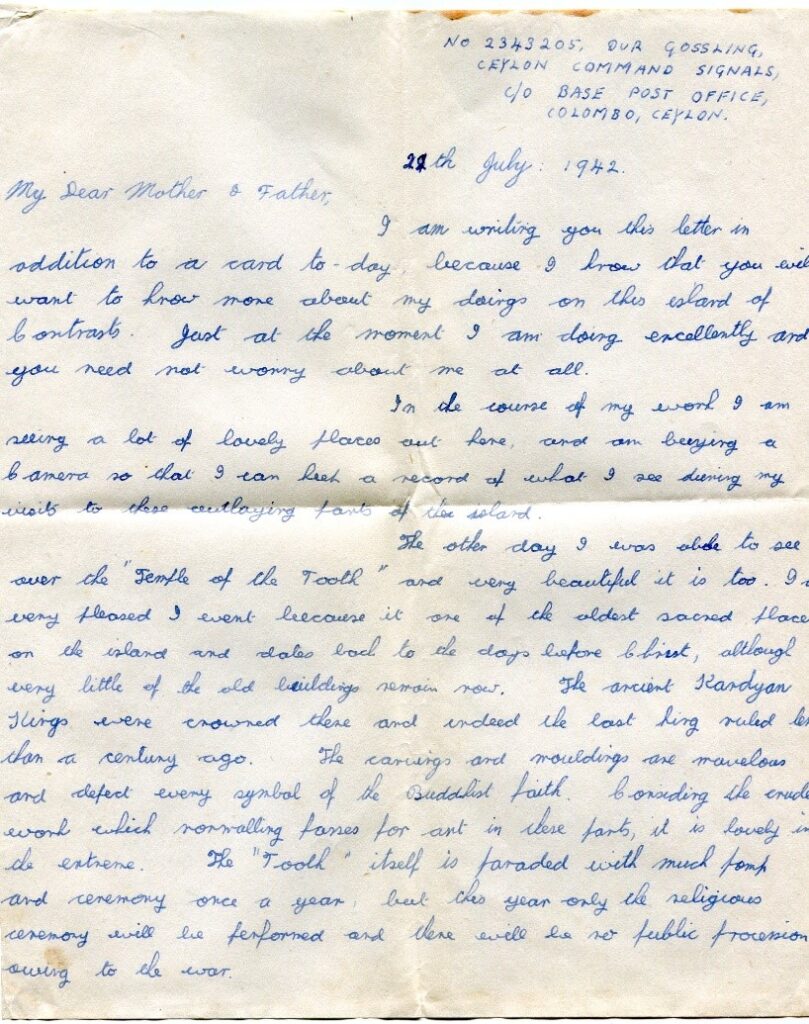For three weeks in July 2021 Dorset History Centre has hosted three students undertaking work experience. For obvious reasons, this year has been very different to previous years, with the students having to work remotely for large parts of their time, with the occasional day in the building learning about collections.
The students have written us a blog each on something they were involved with, as well as their perspectives on work experience in the age of Covid! This second blog is from Katherine Gregory…
—
During our second week of work experience at the Dorset History Centre, we were tasked with the job of summarising the details of letters written by Richard Gossling, who served in the 18th Division Signal Home Forces during the second world war, to his parents. Richard was first based in England in 1941, before serving in the Ceylon Army Signals Colombo in 1942, in what is now Sri Lanka. This collection also included some papers, postcards and photographs.
During his time in England, Richard, like much of the country experienced bombing raids. This letter, which he wrote on 5 March 1941, details his experience of a bombing raid in Liverpool.

In Sri Lanka, Richard had to deal with the separation from his parents, with letters and parcels sent to each other taking weeks, sometimes months, to reach each other, and Richard frequently wished the war would end so that he could be reunited with his parents. We can see this here in a letter dated on the 3 December 1942:

Richard also enjoyed the sights that Sri Lanka had to offer, visiting temples, exploring the landscape, and commentating on the culture of the locals. In this letter, dated on the 29 July 1942, Richard talks about his visit to the local temples, and his attempt at learning local languages:


When these letters arrived at the DHC they were jumbled up in a random order. By summarising the contents of these letters and noting the date of them, we have enabled these to be put in order so that they can be catalogued, allowing access to them for those who want to. Due to covid restrictions, we did much of this work remotely, only coming onto the site for a day and a half during this week. We did this by working through scanned copies of the documents. During the week we also had a go at transcribing some of the letters, some of which were definitely more legible than others!
While there were many interesting parts of the letters, such as Gossling’s clear love of trains, smoking and pipes, coming through, there were also some more mundane parts such as notes about sending dirty washing to his parents to clean, and of course being British, much talk about the weather! These letters touched on a variety of subjects, some sad, such as the deaths of fellow soldiers, and bombing raids, while others looked on the bright side of life, with Richard talking about visits to the cinema, the theatre and the dances he went to. These personal stories bring history to life, allowing us to learn about the everyday things that soldiers encountered and the more unusual things. We can also see how our understanding of other cultures has progressed, with Richard thinking little of the locals in Sri Lanka in his letters.

